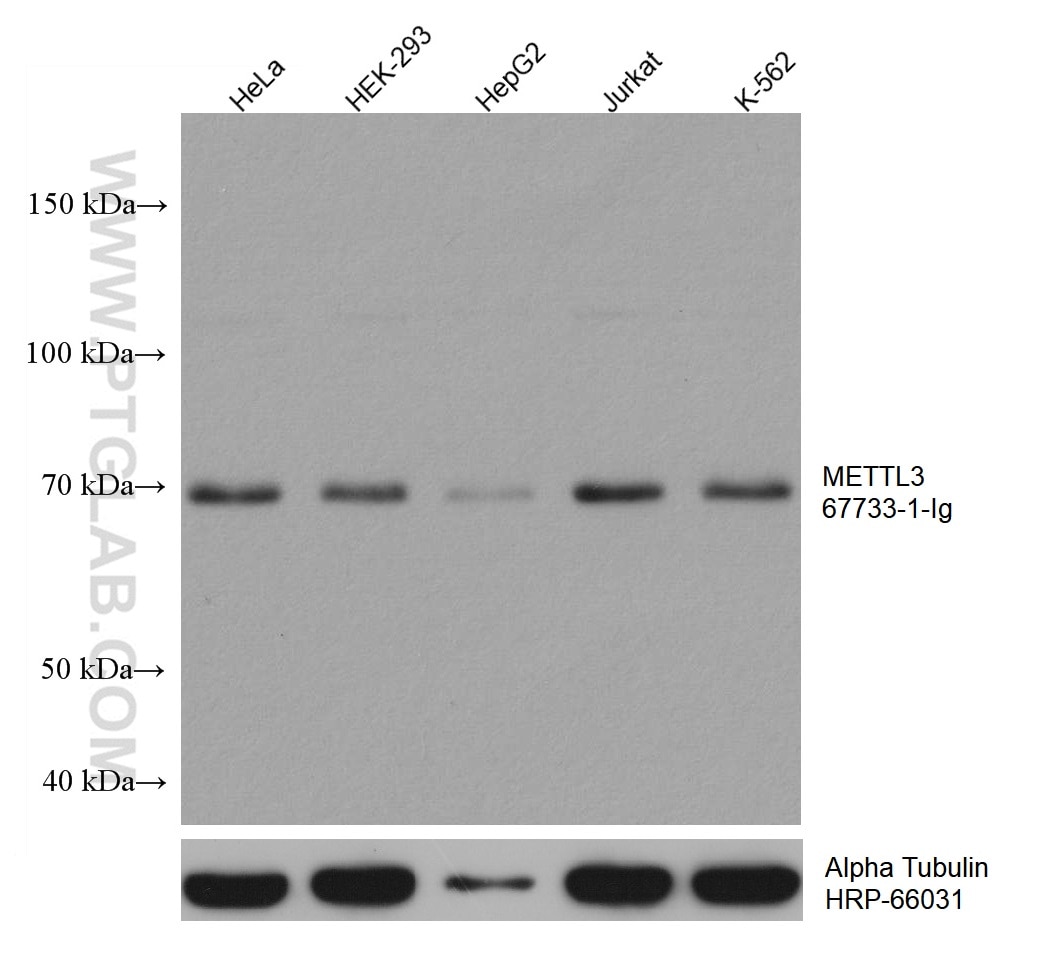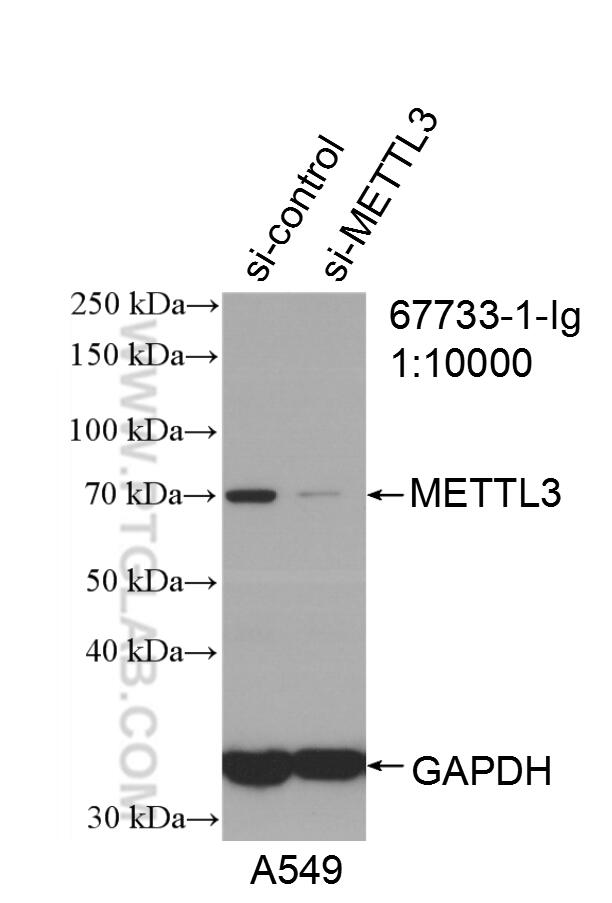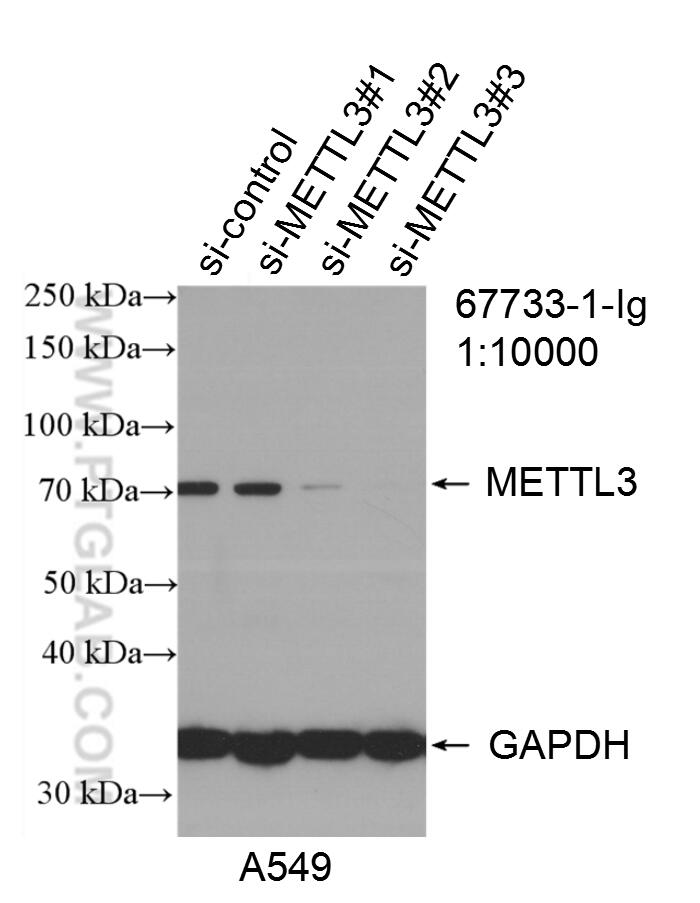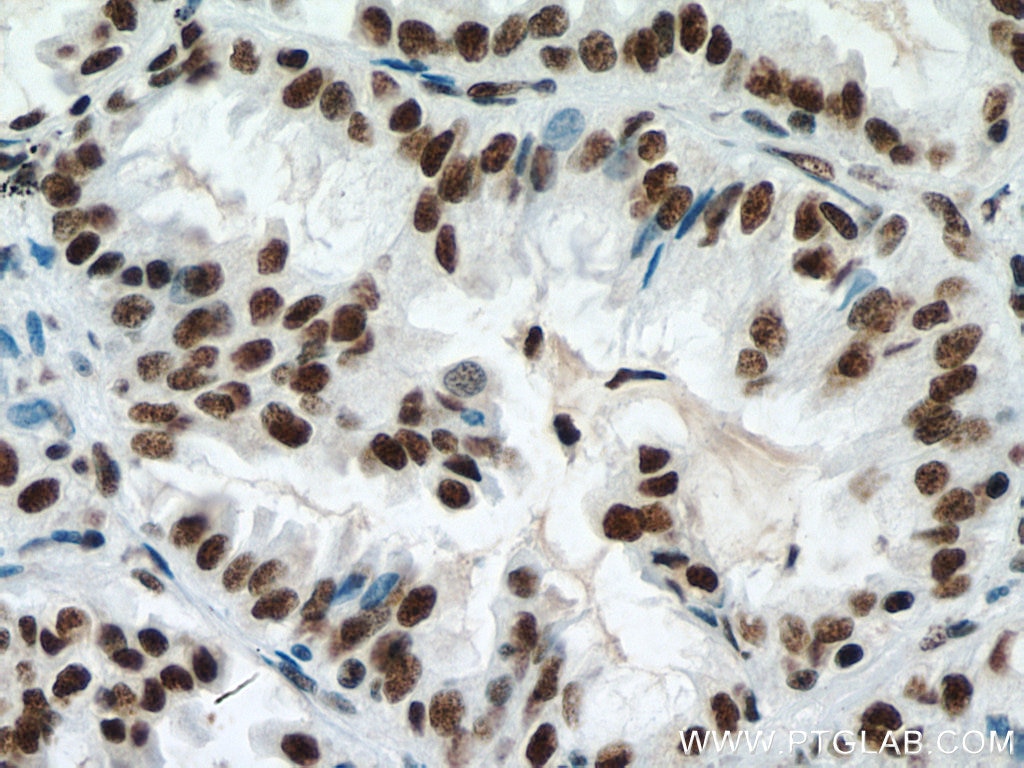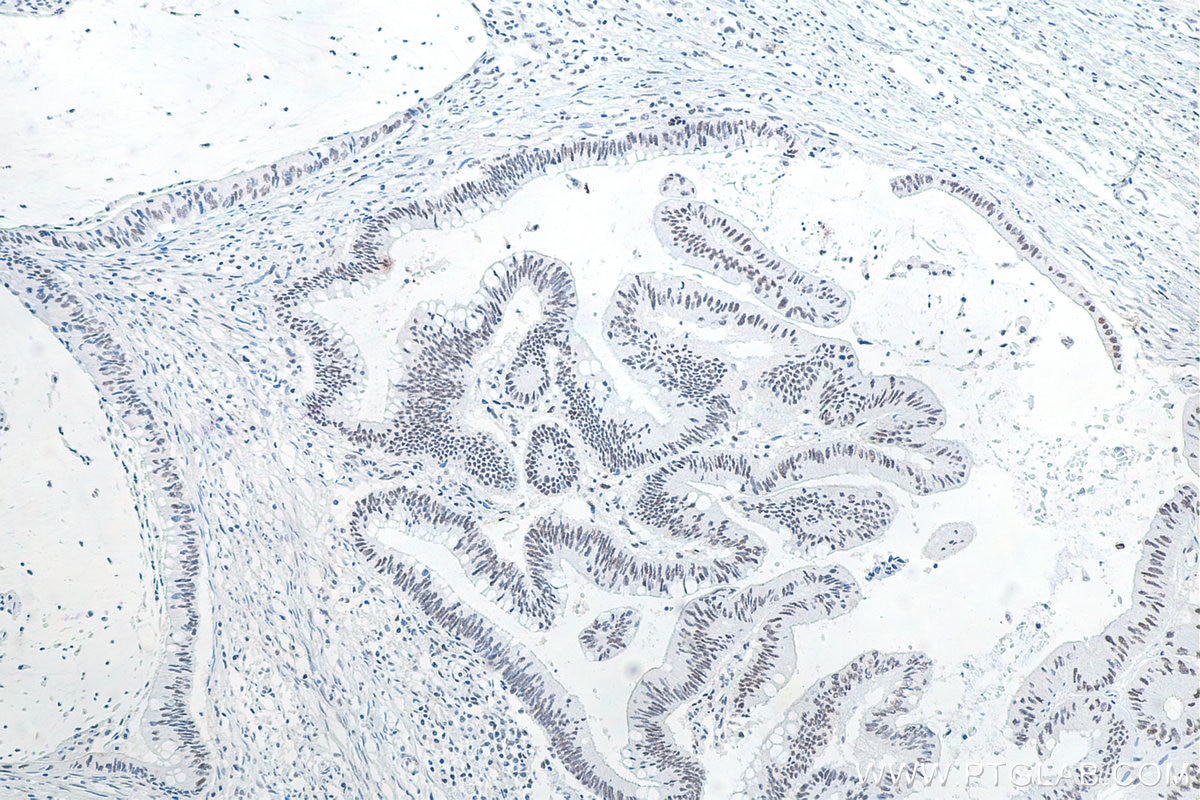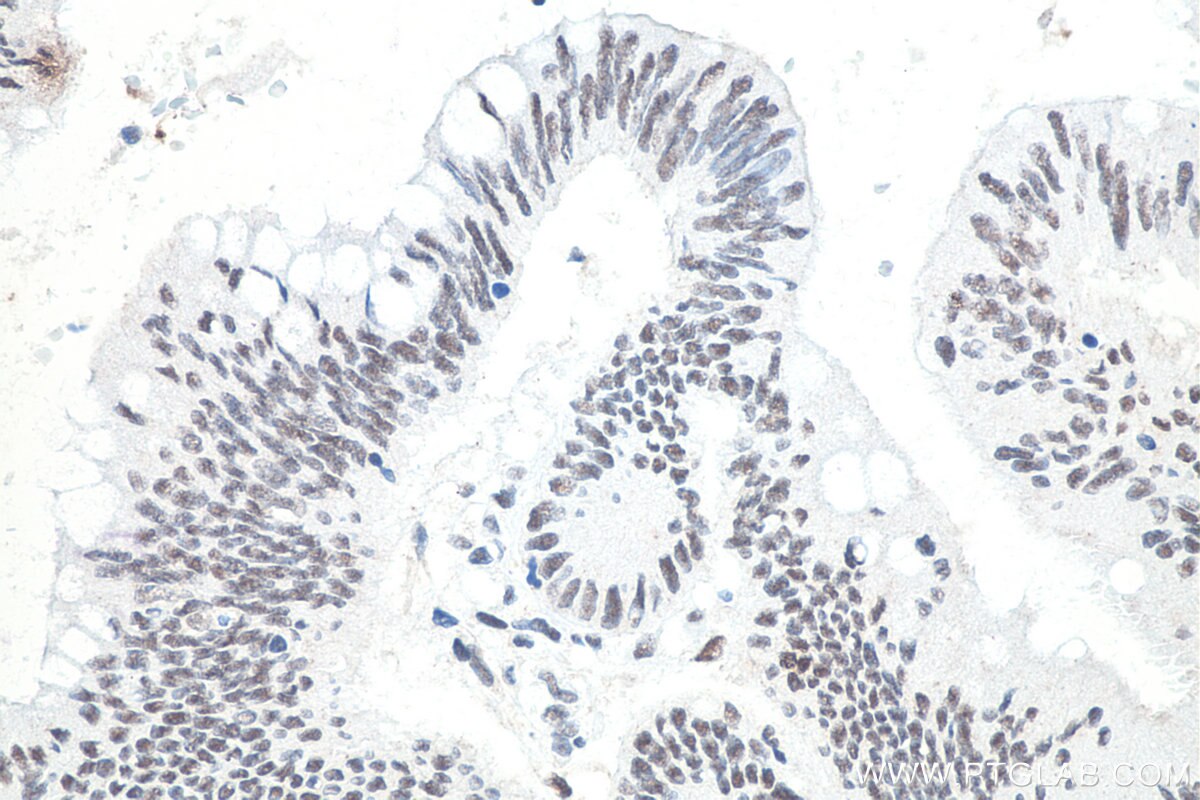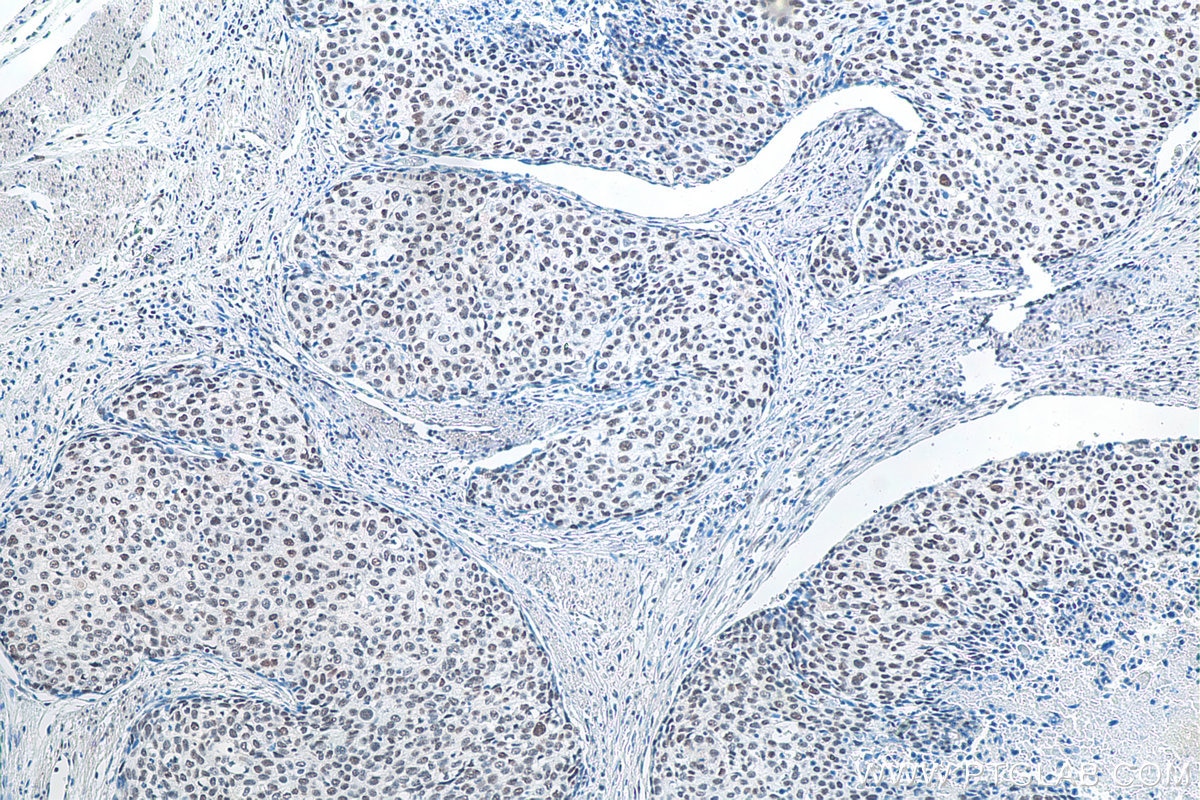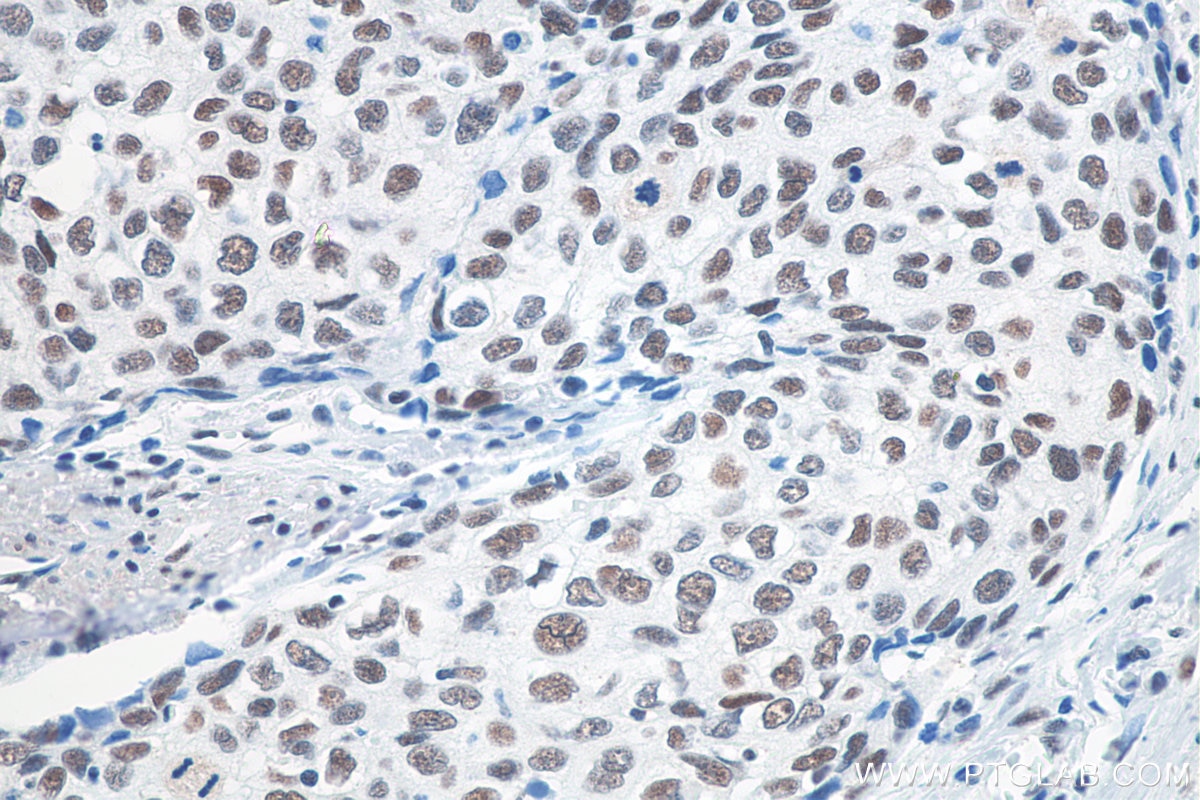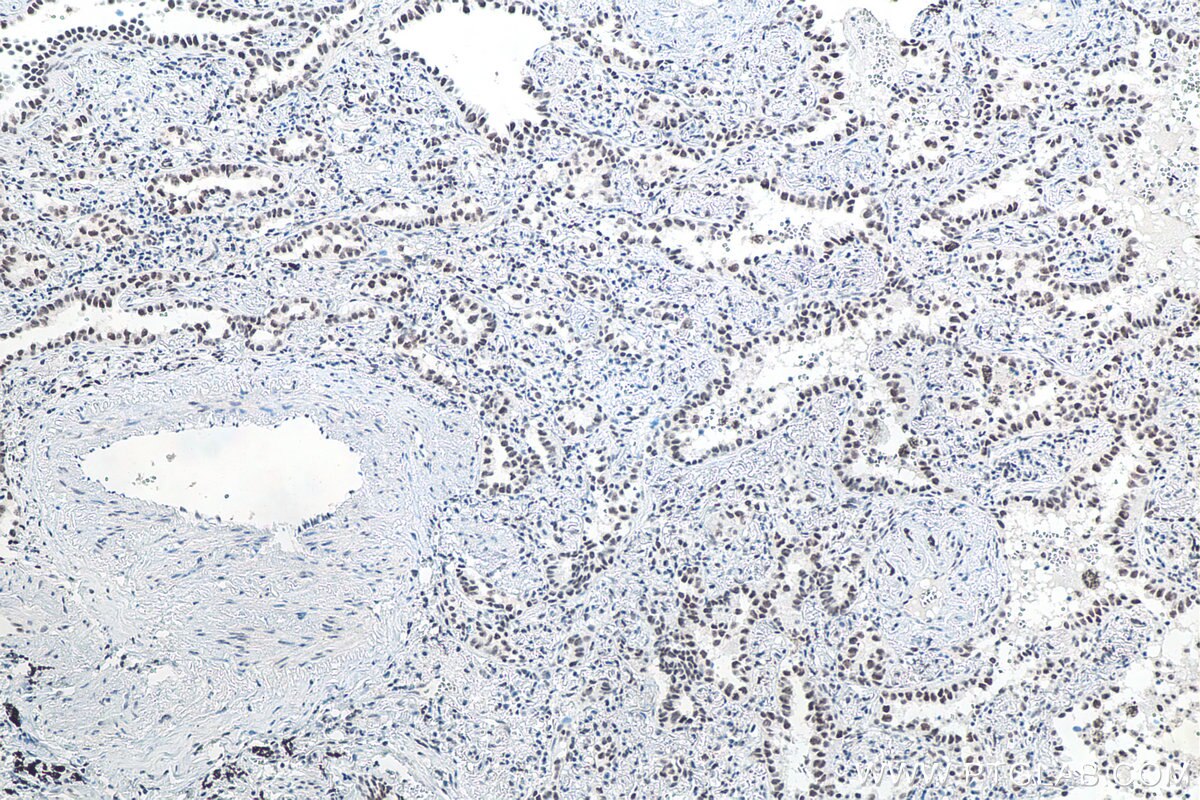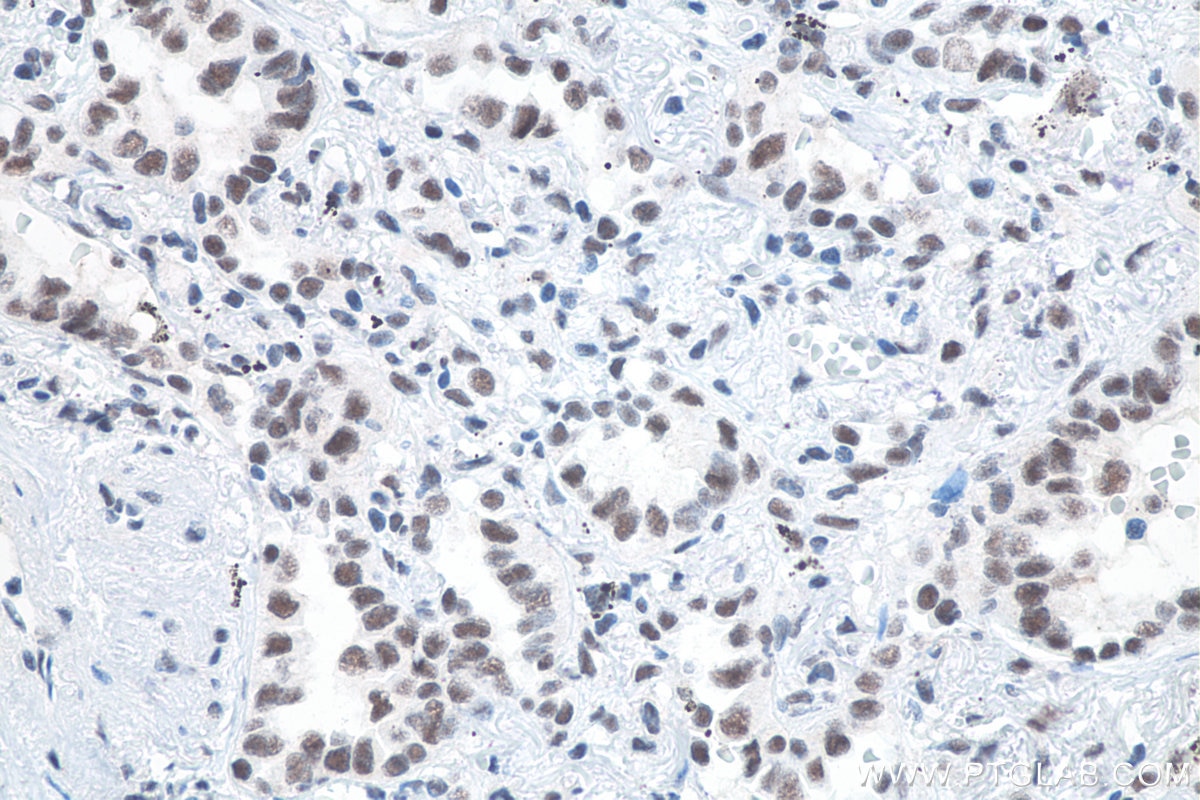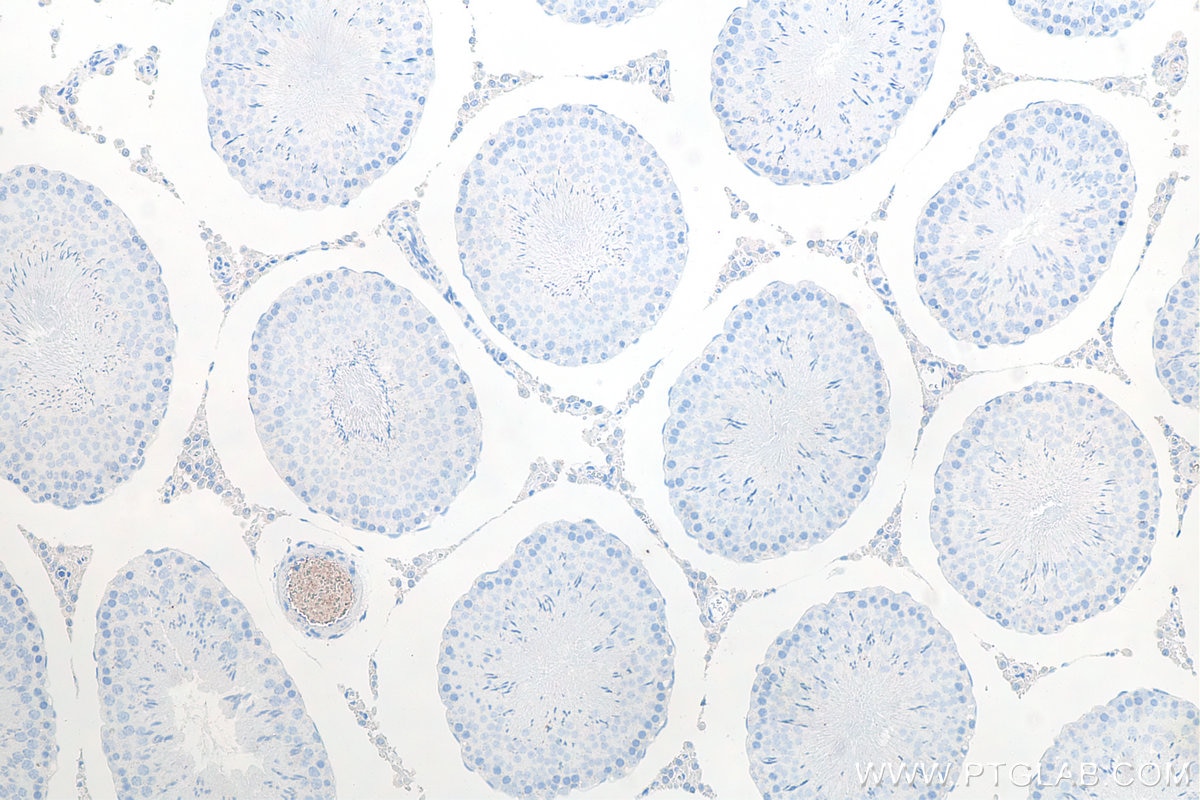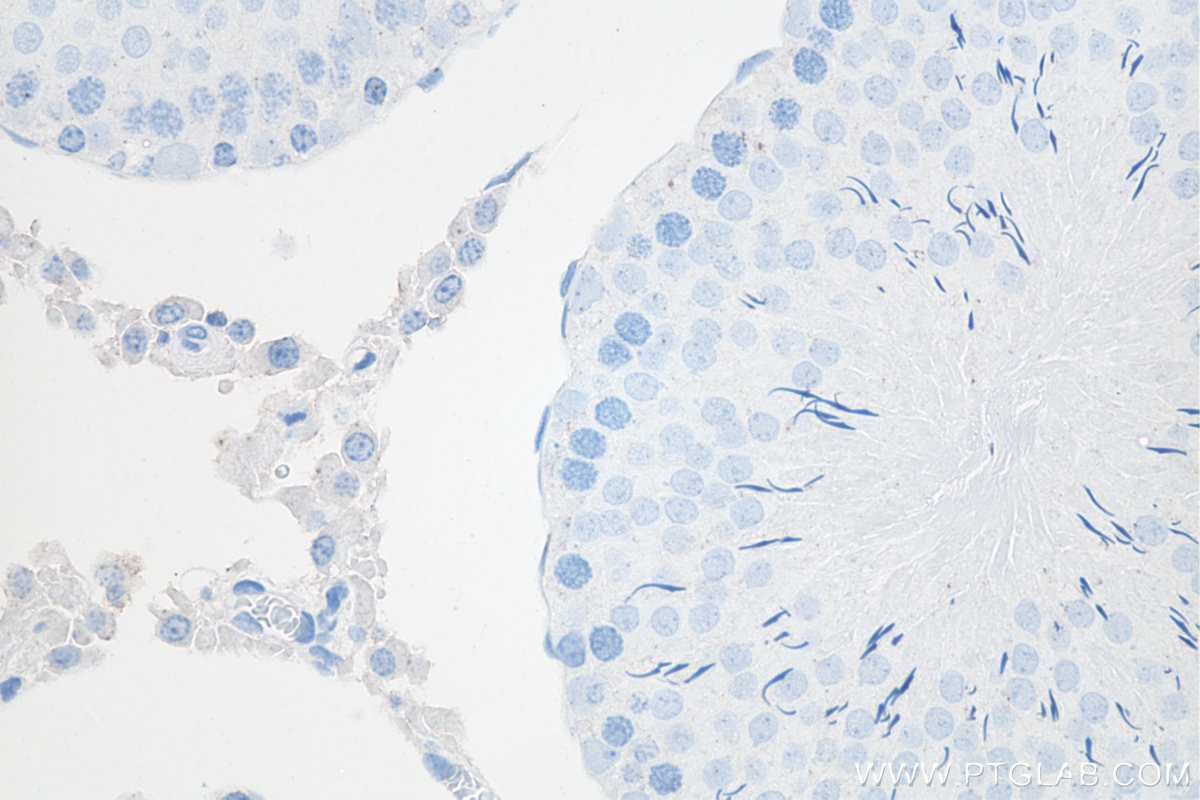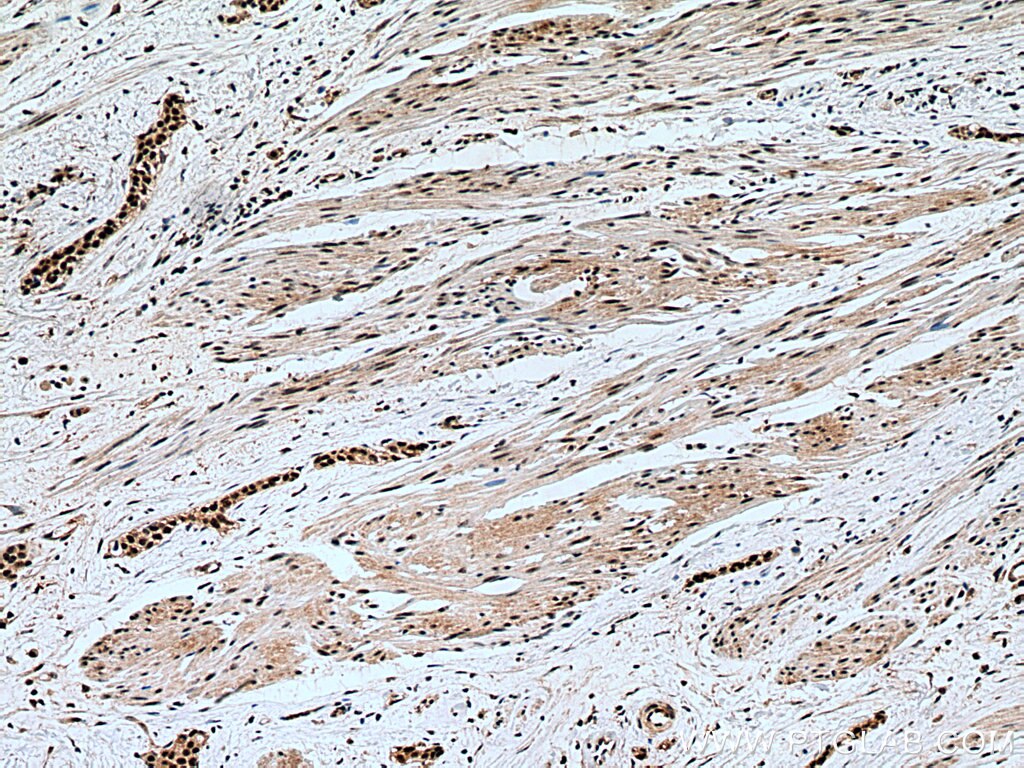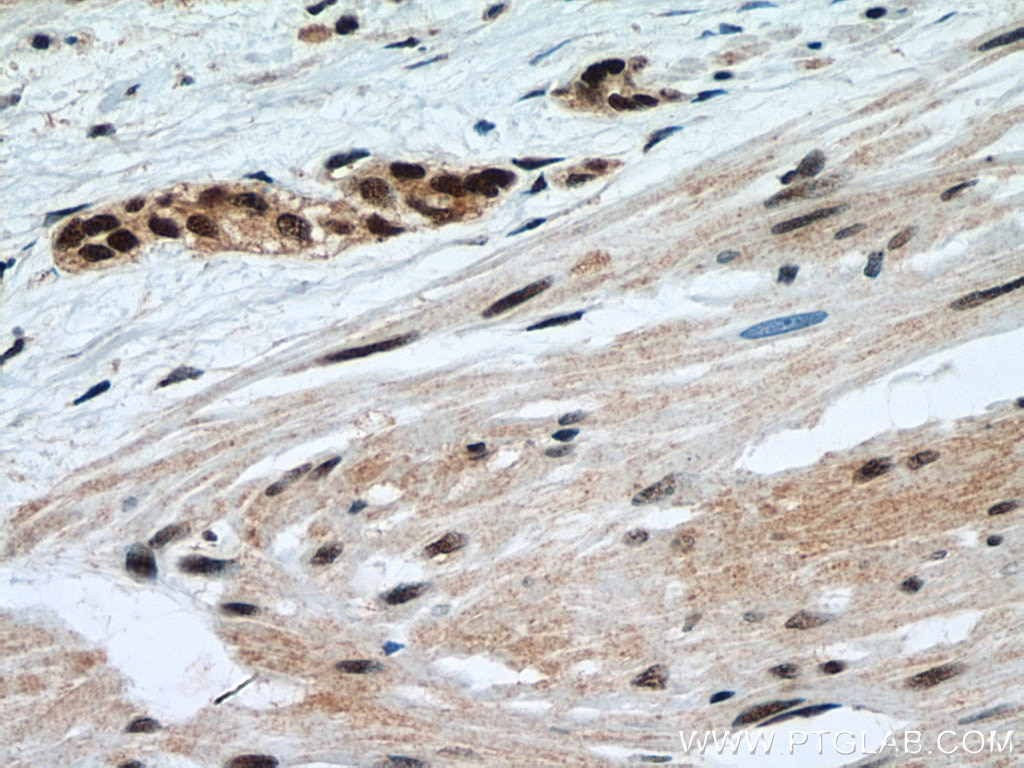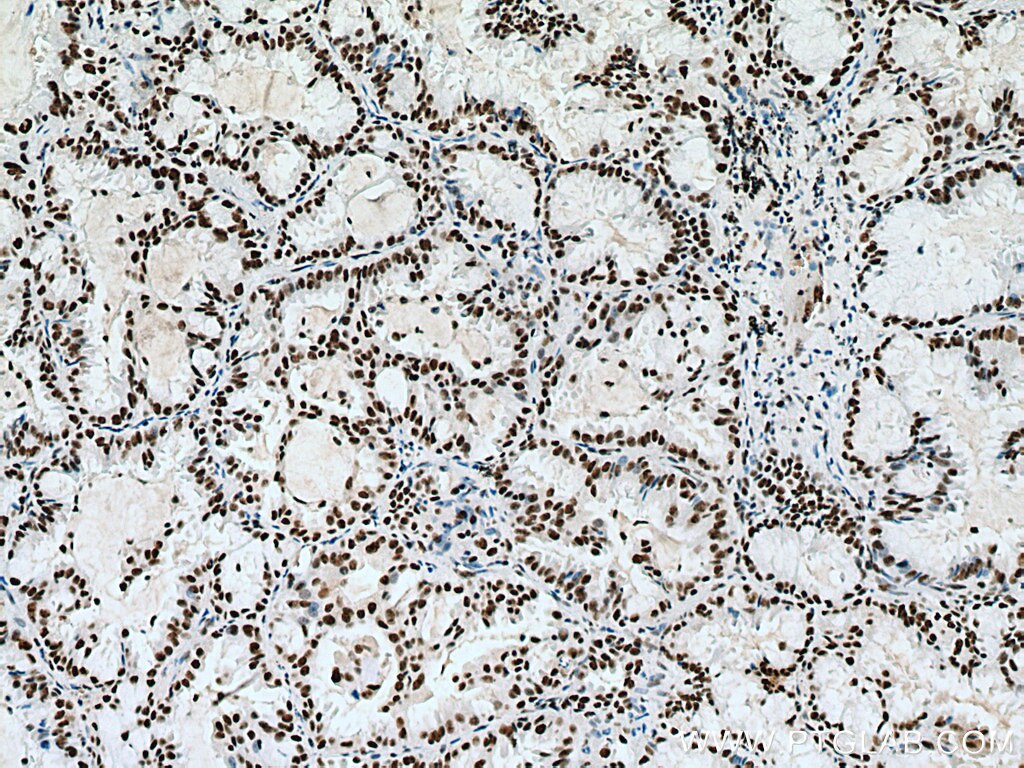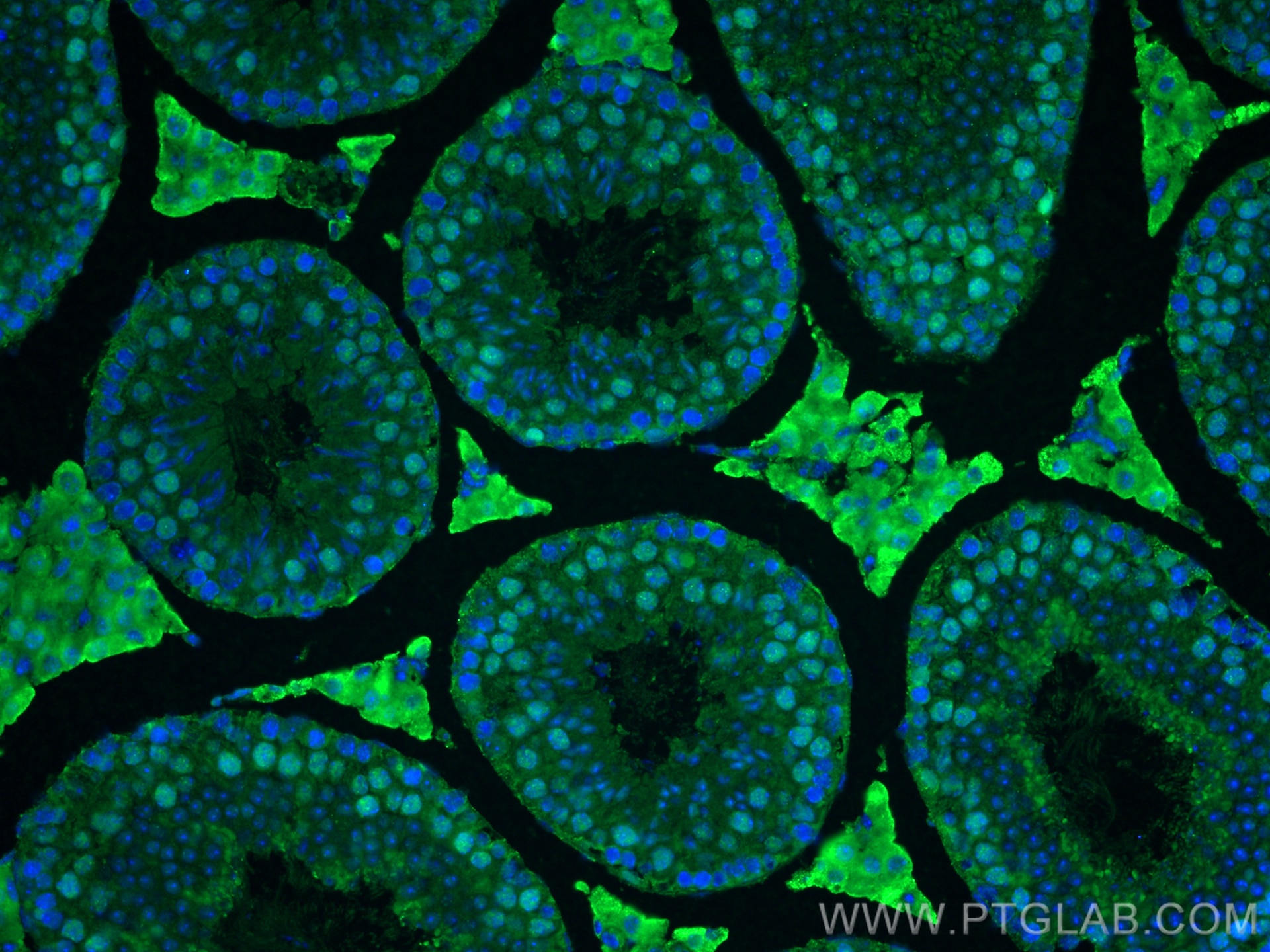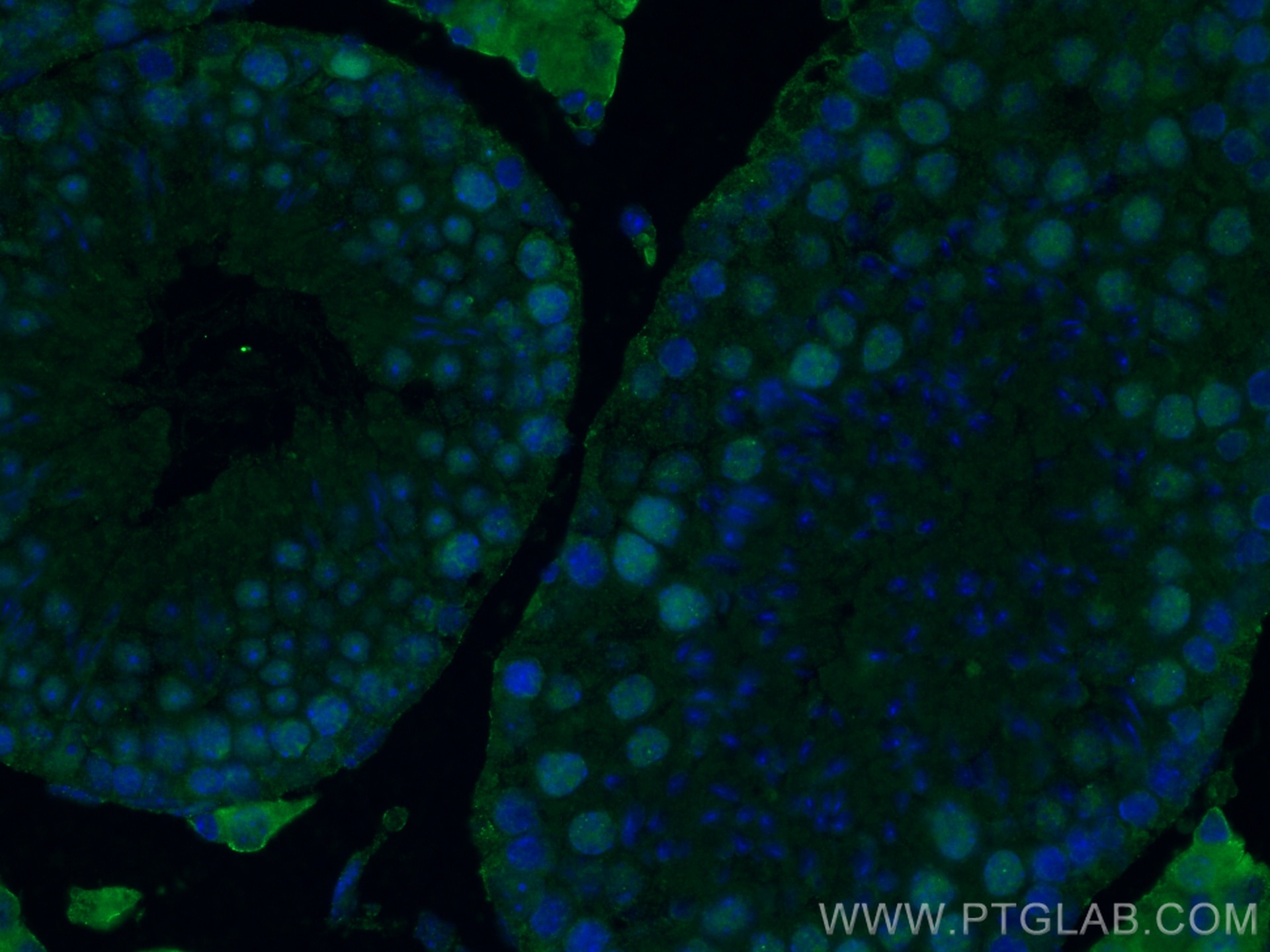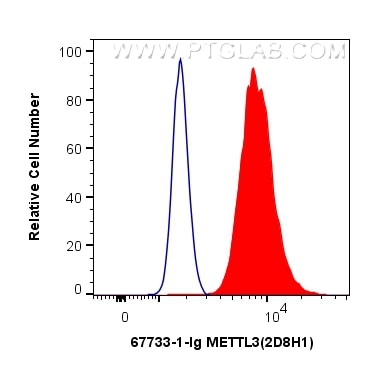- Phare
- Validé par KD/KO
Anticorps Monoclonal anti-METTL3
METTL3 Monoclonal Antibody for FC, IF, IHC, WB, ELISA
Hôte / Isotype
Mouse / IgG1
Réactivité testée
Humain, souris et plus (1)
Applications
WB, IP, IHC, IF, FC, ELISA
Conjugaison
Non conjugué
CloneNo.
2D8H1
N° de cat : 67733-1-Ig
Synonymes
Galerie de données de validation
Applications testées
| Résultats positifs en WB | cellules HeLa, cellules A549, cellules HEK-293, cellules HepG2, cellules Jurkat, cellules K-562 |
| Résultats positifs en IHC | tissu de cancer du poumon humain, tissu de cancer de l'œsophage humain, tissu de cancer du côlon humain, tissu de carcinome urothélial humain il est suggéré de démasquer l'antigène avec un tampon de TE buffer pH 9.0; (*) À défaut, 'le démasquage de l'antigène peut être 'effectué avec un tampon citrate pH 6,0. |
| Résultats positifs en IF | tissu testiculaire de souris, |
| Résultats positifs en cytométrie | cellules HEK-293, |
Dilution recommandée
| Application | Dilution |
|---|---|
| Western Blot (WB) | WB : 1:5000-1:50000 |
| Immunohistochimie (IHC) | IHC : 1:500-1:2000 |
| Immunofluorescence (IF) | IF : 1:200-1:800 |
| Flow Cytometry (FC) | FC : 0.40 ug per 10^6 cells in a 100 µl suspension |
| It is recommended that this reagent should be titrated in each testing system to obtain optimal results. | |
| Sample-dependent, check data in validation data gallery | |
Applications publiées
| KD/KO | See 3 publications below |
| WB | See 6 publications below |
| IHC | See 2 publications below |
| IF | See 3 publications below |
| IP | See 3 publications below |
Informations sur le produit
67733-1-Ig cible METTL3 dans les applications de WB, IP, IHC, IF, FC, ELISA et montre une réactivité avec des échantillons Humain, souris
| Réactivité | Humain, souris |
| Réactivité citée | rat, Humain, souris |
| Hôte / Isotype | Mouse / IgG1 |
| Clonalité | Monoclonal |
| Type | Anticorps |
| Immunogène | METTL3 Protéine recombinante Ag7110 |
| Nom complet | methyltransferase like 3 |
| Masse moléculaire calculée | 64 kDa |
| Poids moléculaire observé | 65-70 kDa |
| Numéro d’acquisition GenBank | BC001650 |
| Symbole du gène | METTL3 |
| Identification du gène (NCBI) | 56339 |
| Conjugaison | Non conjugué |
| Forme | Liquide |
| Méthode de purification | Purification par protéine G |
| Tampon de stockage | PBS avec azoture de sodium à 0,02 % et glycérol à 50 % pH 7,3 |
| Conditions de stockage | Stocker à -20°C. Stable pendant un an après l'expédition. L'aliquotage n'est pas nécessaire pour le stockage à -20oC Les 20ul contiennent 0,1% de BSA. |
Informations générales
METTL3 is a key S-adenosyl-L-methionine-binding subunit, which is component of a complex multicomponent enzyme that catalyzes the methylation of internal adenosine residues in eukaryotic mRNA, forming N6-methyladenosine. It contains 2 putative nuclear localization signals and 2 consensus methylation motifs. The calculated molecular weight of METTL3 is 64 kDa, but modified METTL3 is about 65-70 kDa.
Protocole
| Product Specific Protocols | |
|---|---|
| WB protocol for METTL3 antibody 67733-1-Ig | Download protocol |
| IHC protocol for METTL3 antibody 67733-1-Ig | Download protocol |
| IF protocol for METTL3 antibody 67733-1-Ig | Download protocol |
| FC protocol for METTL3 antibody 67733-1-Ig | Download protocol |
| Standard Protocols | |
|---|---|
| Click here to view our Standard Protocols |
Publications
| Species | Application | Title |
|---|---|---|
Cancer Lett Therapeutic targeting m6A-guided miR-146a-5p signaling contributes to the melittin-induced selective suppression of bladder cancer. | ||
J Invest Dermatol NPTX2 Promotes EMT in Cutaneous Squamous Cell Carcinoma via Mettl3-Mediated m6A Methylation of Snail | ||
Am J Respir Cell Mol Biol The Combined Effects of Circular RNA Methylation Promote Pulmonary Fibrosis.
| ||
Evid Based Complement Alternat Med m6A RNA Methylation Regulators Contribute to Predict and as a Therapy Target of Pulmonary Fibrosis. | ||
Int J Mol Sci Reduction of Methyltransferase-like 3-Mediated RNA N6-Methyladenosine Exacerbates the Development of Psoriasis Vulgaris in Imiquimod-Induced Psoriasis-like Mouse Model
| ||
Apoptosis NRP1 contributes to stemness and potentiates radioresistance via WTAP-mediated m6A methylation of Bcl-2 mRNA in breast cancer |
